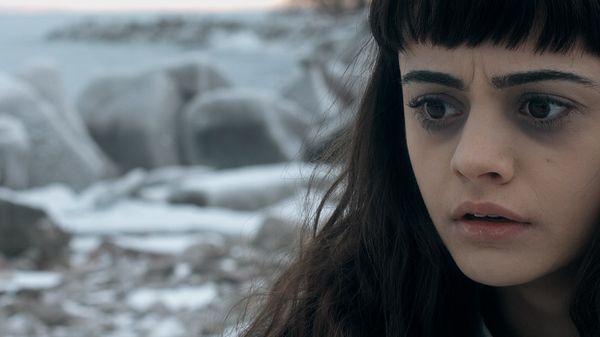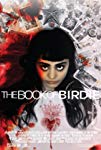Eye For Film >> Movies >> The Book Of Birdie (2017) Film Review
The Book Of Birdie
Reviewed by: Jennie Kermode

For some people, the passage into adolescence is a bloody as birth. For Birdie, the two overlap. Though the grandmother who leaves her at a convent doesn't tell the nuns why Birdie (Ilirida Memedovski) is no longer welcome in the place where she grew up, it soon becomes apparent when she miscarries. Not wanting to tell them about it, she keeps the foetus she has lost inside a jar, creating a shrine to it underneath her bed. She didn't consent to the act that produced it but her love for it is tangible, limned in red, and perhaps there's something else too. Death isn't the same to Birdie as it is to other people. The dead remain very much a part of her world.
This applies to the nun who lies broken at the bottom of a spiral staircase, and another who hangs from a tree. Sometimes it's confusing for Birdie - she doesn't seem quite sure what other people can see. Perhaps this isn't so different in nature from what most teenagers go through, trying to figure out how others understand the world and how they can fit into it. The nuns are mostly kind to Birdie, trying to understand what she's going through and not put too much pressure on her to consider a religious lifestyle, but she still finds herself in a difficult position as a troubled, complicated girl surrounded by narratives of female submission, suffering and sacrifice in which the concept of redemption is closely bound up with death.

Everything here hinges on the central performance and Memedovski acquits herself well, showing us many different sides to her character and embracing the story's Gothic aspects without losing sight of the modern or mundane. Matters of faith are treated playfully when Birdie and girlfriend Julia (Kitty Fenn) discuss whether or not they believe in the Dakotas. Birdie's sexuality is entangled with her very physical sense of what it means to be female: she paints her face with menstrual blood and leaves streaks of scarlet on virginal white gowns. Animation designed around Medieval Catholic symbology illuminates her dream sequences; in one such instance, a uterus and ovaries fly toward the heavens, taking on the form of the Sacred Heart. This never comes across as rebellious or anti-religious, but as something sacred. Birdie has a deep spirituality of her own and, through it, the film explores the connection between Catholic and Pagan traditions, especially in relation to female bodies and concepts of generation and fecundity.
It's winter at the convent and the snowy landscapes, as much as the plainness of the nuns' quarters and austerity of their habits. stand in opposition to all that fierce life, promising struggle. With the exception of the visible dead, however, conventional horror tropes are avoided. What matters here is the internal and the way that nature is interpreted in moral terms. In a year when there have been several films about convents as loci of Satanic evil, it's refreshing to see something that is at once more generous toward its cloistered subjects and more challenging in terms of the questions it raises. It's also beautifully shot, its languid pacing perfectly complemented by Konstantinos Koutsoliotas' cinematography, making it a pleasure to watch.
Though in places it would benefit from a more coherent structure, The Book Of Birdie is a bold attempt to do something different and a fantastic showcase for the talents of a young actress with a bright future ahead of her.
Reviewed on: 02 Oct 2018















